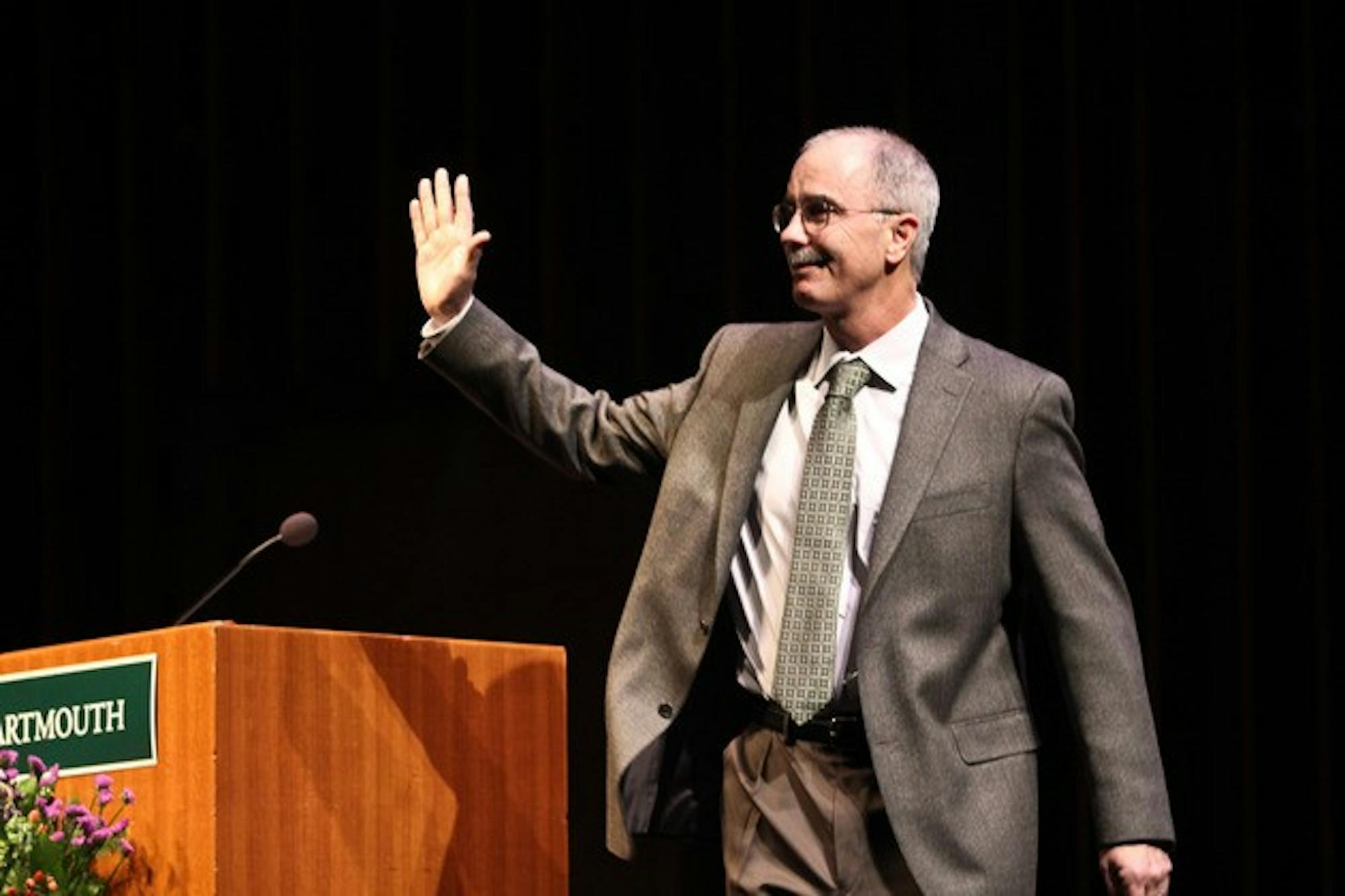Hanlon compared the changes the College faces today with those faced by former President John Kemeny in the 1970s. Kemeny, who "responded boldly" to the challenges of the time, implemented co-education, created the Dartmouth Plan to relieve enrollment growth and suspended classes in the wake of Vietnam War protests.
"Success will go to those colleges and universities that make the right choices at this important moment," he said.
Similar to the financial burdens many students faced in the 1970s, the College must address the rising costs of higher education resulting from a weak economy, he said.
Finding a method to reduce the high cost of college education will have a significant effect on students around the country, Brian Pogue, dean of graduate studies at the Thayer School of Engineering and Presidential Search Committee member, said.
"Dartmouth is at the upper end of cost of education so we would be naive to not have that be at the forefront of what we're thinking about," he said. "It's a big game of all the institutions raising tuition and nobody is changing from that game plan, so if there's a creative solution to be found, that would have a big impact."
While Dartmouth is fortunate because its endowment allows it to award students a significant amount of financial aid, other institutions around the country continue to face difficulties with prohibitive educational costs, alumni trustee Bill Burgess '81. Burgess said that Dartmouth has the capacity to lead the nation in finding solutions to such problems.
"Dartmouth has an obligation as a non-profit institution to do the best job it can to influence our broader society," Burgess said. "I totally believe in this notion that Dartmouth should create leaders, who go out and solve problems, whether it's in their local community, in their family or in the larger community."
Burgess said that Hanlon's decade-long experience in administrative positions at the University of Michigan makes him well-equipped to lead Dartmouth in delivering an "efficient and effective" education.
Victoria Li '16 said she appreciated Hanlon's emphasis on educational affordability.
"I am on financial aid, and I have a lot of friends who weren't able to attend the colleges that they wanted because of financial barriers," she said. "I am really excited that he wants to breach that gap."
Addressing the revolution in higher education caused by the proliferation of information technologies, Hanlon stressed the opportunities that the College has to "rethink our history modes of education and discovery."
Mathematics professor Peter Winkler, who attended the event, agreed with Hanlon's belief that the information technology revolution in higher education has the power to transform the classroom.
With the advent of online universities and an increased focus on online lectures, Winkler said that Dartmouth could lead the way in transforming the classroom from a lecture hall to a place of greater interaction between students and professors.
"We can use more and more of our classrooms for interaction, and lecturing can be done online instead," he said. "So we can combine these ideas and do a better job of educating students who are actually on campus."
Hanlon also said that upon graduation, students are introduced to a workforce characterized by greater complexity, diversity and global reach that is driven by the talents of individuals rather than large organizations.
"Our graduates are entering a workplace that is itself undergoing profound changes," Hanlon said. "These changes to the workplace compel us to rethink the ways in which we prepare our graduates to lead."
Like Kemeny, Hanlon said he will continue to teach students while serving as College president if the mathematics department allows him, which has garnered excitement from students.
"The president seemed like someone who was always far away and I was very surprised that he would want to teach," Li said. "I was really excited that he was open to students and he would want to reach out to them in that aspect."
In addition to speaking about his goals for the College, Hanlon talked about his personal journey from a small mining town in the Adirondack Mountains to Dartmouth to administrative roles in higher education.
"I arrived at Dartmouth with a weak understanding of the world and little confidence in my academic abilities," Hanlon said. "Dartmouth is where I grew up."
Hanlon also praised the College for empowering students to confront the world's most important issues, such as meeting the planet's energy needs, using art to influence social norms and developing effective health care.
In his introductory remarks, Board of Trustees Chairman Stephen Mandel '78 said that Hanlon combines leadership, commitment to Dartmouth's mission, academic ambition and "the heart of a teacher" characteristics the Presidential Search Committee prioritized.
In addition to his scholarship and honors, which include the Sloan Research Fellowship and Guggenheim fellowship, Hanlon demonstrates "personal integrity, strength of purpose and love of Dartmouth," he said.




